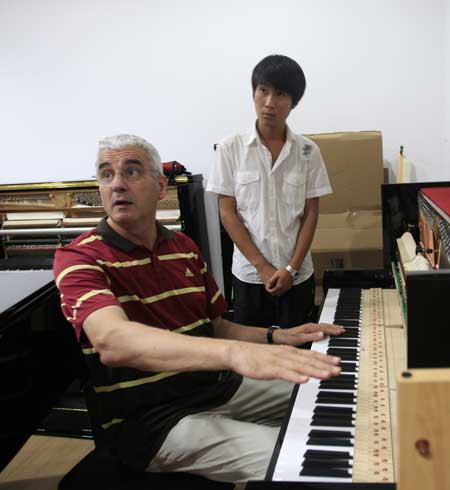

 |
|
[Photo/China Daily] |
"And I knew right then that Chinese piano is not bad (it's) good."
So, he seized an opportunity to move to the country to make pianos.
"I had a good job but (quit) it for China," he says.
"I knew almost nothing about the country."
He was happy with what he discovered upon arrival.
"I didn't know what the factory was like or the Chinese market, or how great the technicians are," he says.
"When I came, (I thought): 'Wow! I love this.'"
He has since made the eye-catching piano used at the 2010 Asian Games, won the Guangzhou Friendship Award for Foreign Expert and worked on the kind of pianos he had always wanted to.
Now, his team of technicians is hand-making the Kayserburg Piano series.
"In art, there is never the best - we only have top-class," he says.
"Here, we make top-class pianos."
That requires constant tweaking and testing.
"I was most impressed by (his) care and precision," says Xie Ziming, who works alongside Mohler.
"We once tuned from 10 am until late afternoon. I had to remind him to eat. We couldn't work any longer on empty stomachs."
Mohler is proud the Kayserburg series won a blind vote for "excellence" in a contest with four other international brands during a promotional tour in the United States this spring.
He immerses himself in music when he's not working but plays clarinet, rather than piano. He spends breaks practicing the wind instrument in the company's dark exhibition hall.
Mohler listens to traditional Chinese music at home, although he doesn't know the names or composers of the pieces he enjoys.
He loves guqin (Chinese zither) and yangqin (Chinese dulcimer) for their ethereal and sliding tones.
"Chinese music has that eerie out-of-tune yet fully in-tune quality," he says. "I love it."
For Chinese version, click here
| Fighting malaria | Comical crooner |